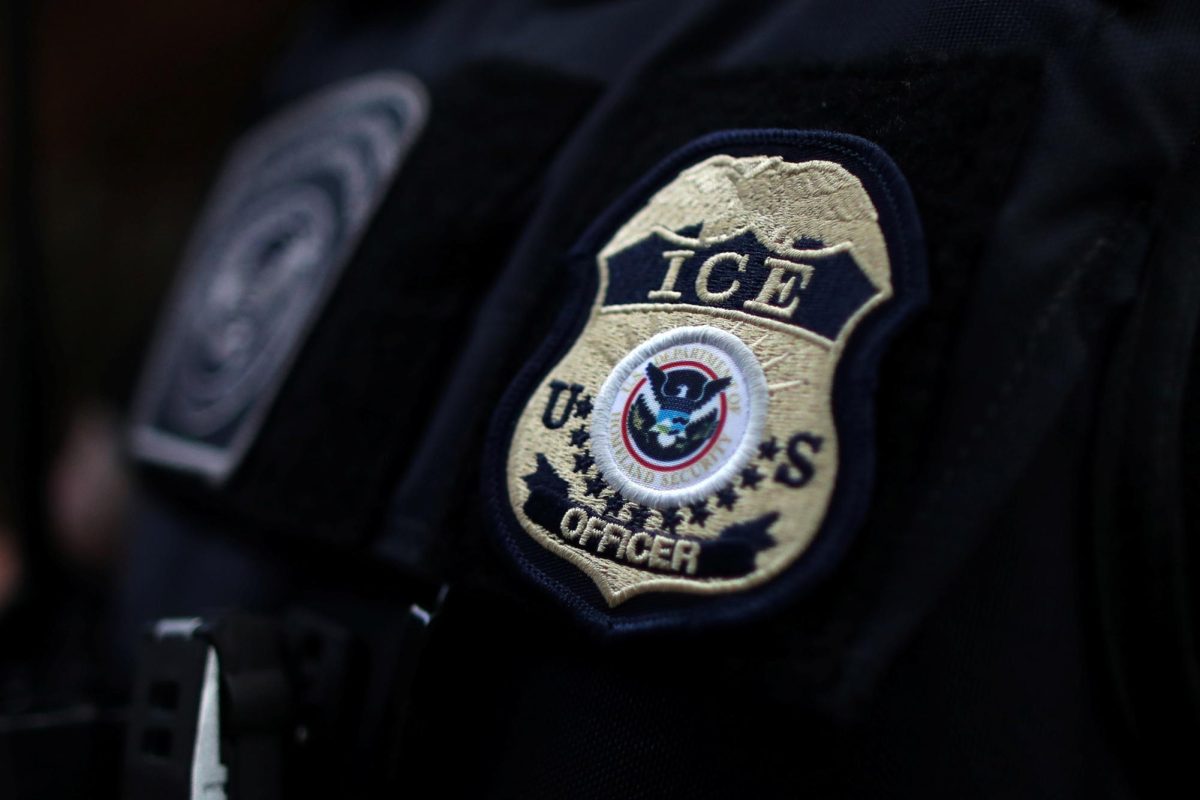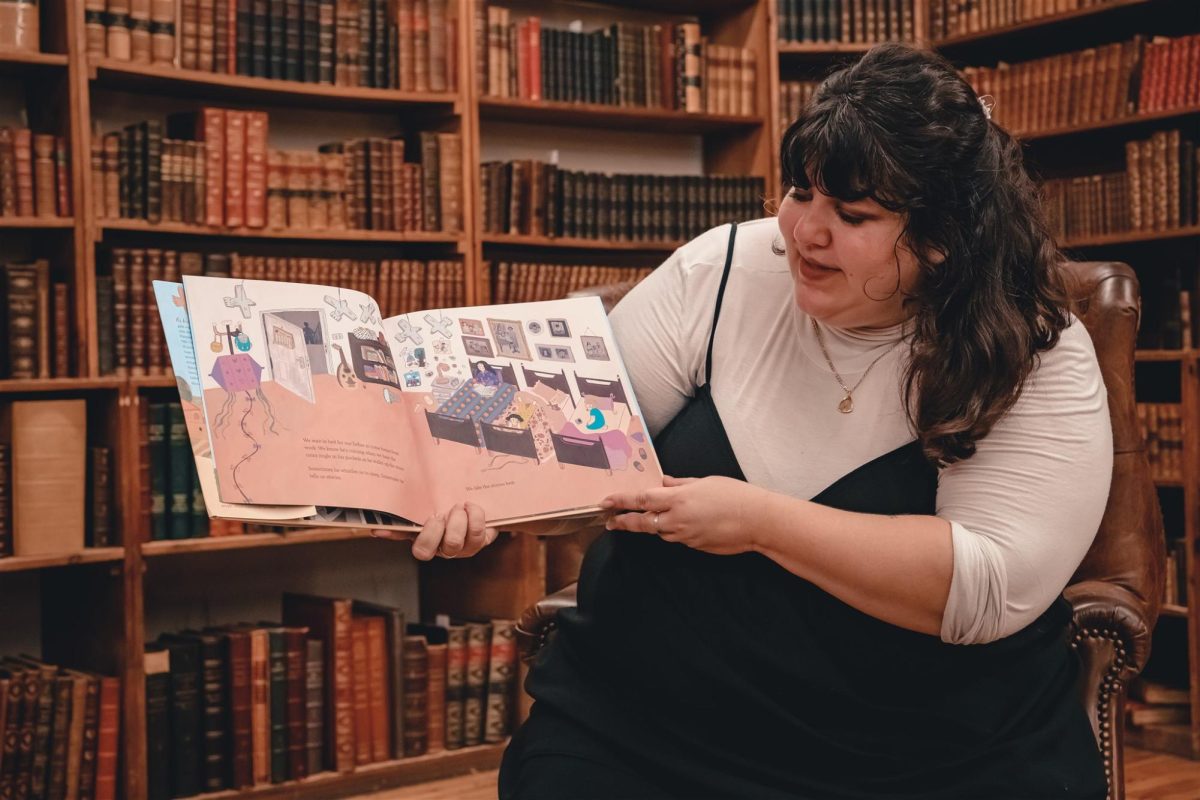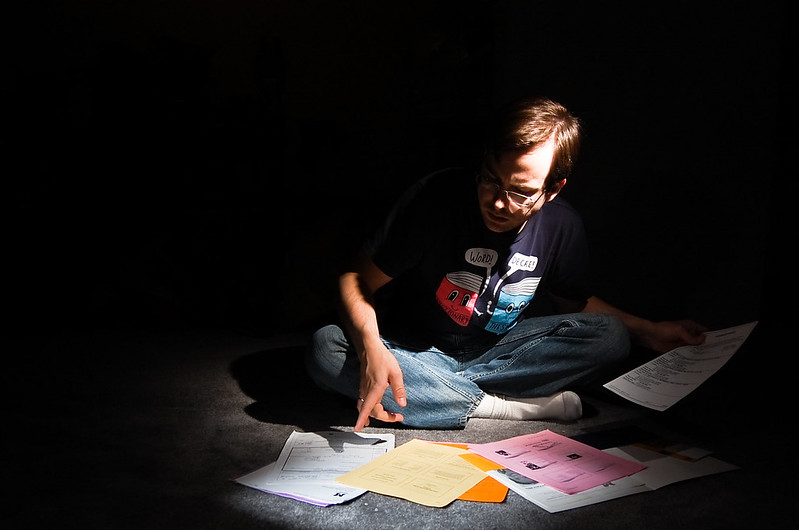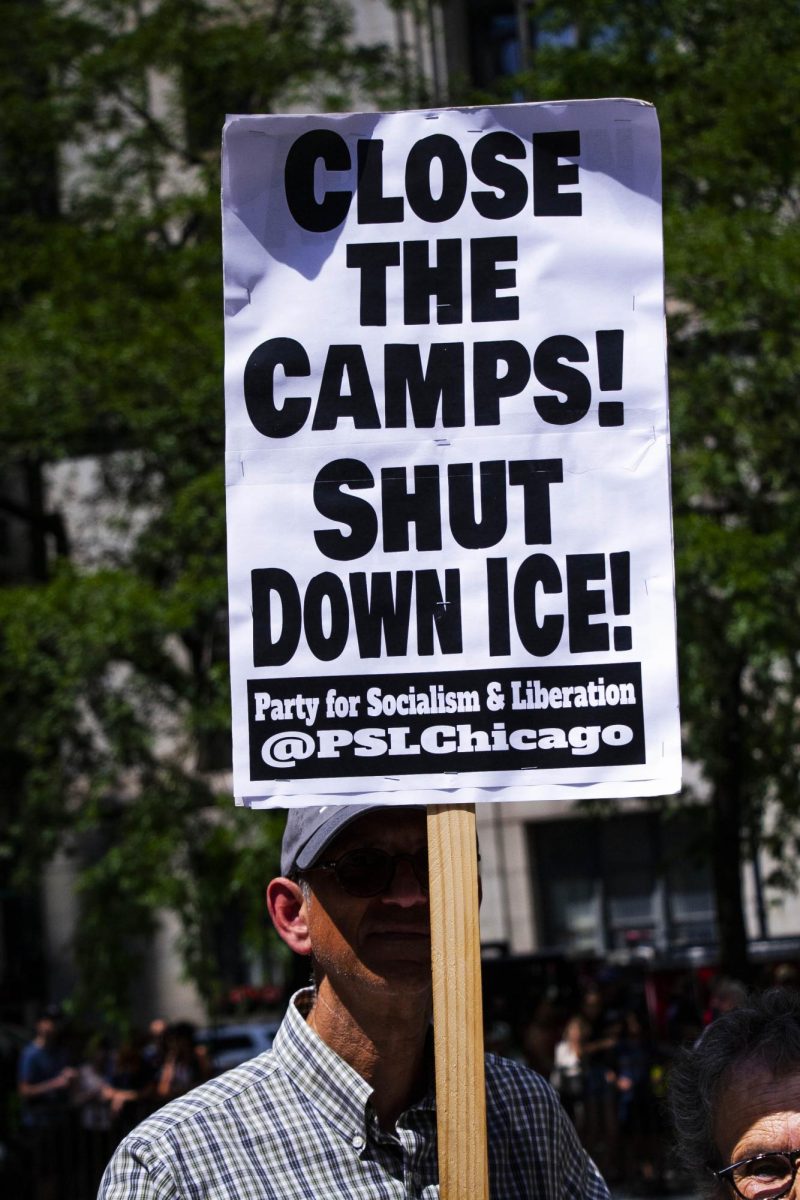The NC State Graduate Workers Union hosted an ICE resistance training on March 27, discussing how to navigate ICE on campus.
Noah Bills, a graduate student and member of Students for Decarbonization at NC State, hosted the training. He started by saying, “I wanted to give a more comprehensive overview, but then I realized that it would be impossible because it would take so many hours.”
Bills broke down the ICE training into three sections. The first section discussed ICE detaining over a dozen graduate and post doctoral students due to “affiliations with Hamas, which means, you know, doing pro-Palestinian activism.”
Bills continued, “I think there’s also one student that was arrested. They didn’t even ever attend a protest, but they wrote an article in a student newspaper, supporting divesting from Israel, and she was arrested.”
That student is Rumeysa Ozturk, a Turkish graduate student at the School of Arts and Sciences at Tufts University who was detained on March 26. There is a video from the Associated Press showing six masked individuals who handcuffed and took Ozturk. She co-wrote an op-ed about her university’s lack of action on Palestine. She was not involved in protests on campus.
Other student incidents include Alireza Doroudi, an Iranian doctoral student at the University of Alabama, who was detained by ICE on March 27. According to ABC News, the Department of Homeland Security said Doroudi’s student visa was revoked and he was subsequently arrested because he “posed significant national security concerns.”
Kseniia Petrova, a Russian medical researcher at Harvard University, was detained on March 28. According to NBC News, her visa was revoked last month because the airport found undeclared frog embryo samples in her luggage. She has also been outspoken about the Russian government and its war against Ukraine.
The second section covered ICE’s detainment of undocumented and people who aren’t graduate students. Bills said, “Graduate workers have to have a valid visa and you can’t be a graduate worker without a valid visa.” He also explains that it is rare for a graduate student to be detained by ICE.
The final section focused on how federal funding cuts are affecting international and graduate students. Bills explained, “Federal funding cuts are very related to all this. They’re affecting all graduate workers, but especially international students. The music department —half of the international students are on a Fulbright Fellowship, and all that money has been frozen right now,” He said “So the university has been paying them with external funds.”
After Bills explained the three main sections, there was a discussion about an ICE incident at Thomas Hall in one of the biology labs.
Katie Stinnett, a graduate student, said, “A faculty member told me that law enforcement of some kind came into a lab in Thomas Hall to ask the TA of the lab about another person by name. The response from the biology department was to tell all the TAs not to disclose any information to ICE because they would be in violation.”
“It seems pretty clear to me that it was some kind of potentially immigration-related and they seem to interpret it that way. I tried to get more information since and feel like I’ve been faced with a lot of stonewalling, which is a little frustrating, but that’s the information that the TA, the professor at the board, told me, and I don’t think she was making anything up” she continued the discussion by discussing administrative vs judicial warrants. He said that “a judge signs the judicial warrant and it’s rare for ICE to have a traditional warrant.”
Bills explained, “If ICE doesn’t have a judicial warrant, they can’t come into your home. Do not answer questions. Do not sign anything. And then a good way to get the agent to go away quickly is just to give them this red card that shows you know your rights because they rely on you not knowing your rights.”
Bills then mentioned a campaign in Colorado Springs. He said, “There was an immigrant community that was vulnerable to ICE that was going to be targeted and they distributed a bunch of red cards. Then ICE did a massive raid where Senators talked about deporting 30,000 people in a single day.”
In reality, ICE only detained 10 people and proved the distribution of red cards was effective in reducing the number of people detained.
Bills then turned the discussion to resistance and public versus private spaces on campus. He said, “You can walk into public buildings and indoor spaces, but if you put up signs saying this is a private workplace, ICE can’t come in without a warrant. You can do that in your teaching labs, your offices, and other private workplaces that you use.”
Bills said, “I recommend locking lab and office doors when ICE targets are working because there are cases where ICE does break the law. If you’re teaching a lab and you lock the door for 10 minutes after the lab starts, you would have at least prevented the law enforcement officer from walking in. We know who our students are. We know who our professors are and who are suspicious people that are maybe ICE. So distributing red cards and the information in this presentation to all of your colleagues is very helpful.”
Bills ended the presentation with “I think that another important thing here is to continue advocating for the things that we believe in, especially US domestic students. The purpose of so many of these policies from ICE and the Trump administration in general is to silence dissent and to build up fear within communities so that they’re more vulnerable when these raids do happen. With Palestinian activism, the Trump administration has very few routes to prosecute domestic students because of free speech. So if you see anything happening, any kind of silencing happening, I’ve heard some people say, ‘should we really be publishing and is it worth taking this cross-commercial stance?’ And I think it is always right and it’s most important to do it now.”
After the presentation, the attendees broke into small groups to discuss the same topics highlighted in the presentation like public spaces and raising awareness about ICE. The event ended with each group sharing their ideas for building resistance, a stronger community on campus and solidarity within the graduate union.
In a post-event interview, The Nubian Message was able to get more commentary from three graduate students on how they plan to help students deal with ICE:
Anonymous:
“I think educating is probably the biggest thing, making sure people are aware of their rights, and how communities are affected so that we can have each other’s back. And then given recent events, pro-Palestinian activists or anyone who said anything pro-Palestine or anti-genocide have been targeted.”
They said, “So recognizing that we all have the rights of due process and freedom of speech, ICE is violating that by arresting people for such stupid things. Getting people information and education is just the greatest tool against oppression and violation of rights.”
Stinnett:
“I think especially people that are in positions like me to maybe protect international students, that’s kind of where I think I’ll be putting a lot of focus in. I think that’s where we can help by basically using our privilege, so I protect students who maybe don’t have those privileges. So that’s something that I really care about.”
Bills:
“A domestic student can’t be detained by ICE. I think actually, there was one case of a domestic student being detained and then let go by ICE. But for the most part, the other mechanisms that domestic students can be reprimanded is they can get their scholarships taken away or be fired from universities. And we’ve seen that at Columbia University. In summary, who are the vulnerable students, non-white immigrants, and that highlights the fact that domestic students, especially domestic white students, have a large responsibility in helping protect our communities against ICE.”
He said, “Students are being detained in some cases for their free speech. Many departments are being cut and renamed, and articles are being retracted, but at the end of the day, I still believe in America, and the First Amendment still stands as an individual and the graduate Union, as an organization, we still have the right to say whatever we want. So in terms of the language that we’re using around this, we’re not changing it at all, because these are things that the Trump administration does not like. I think it’s very important that we continue advocating to make up for the voices that can no longer advocate.”







